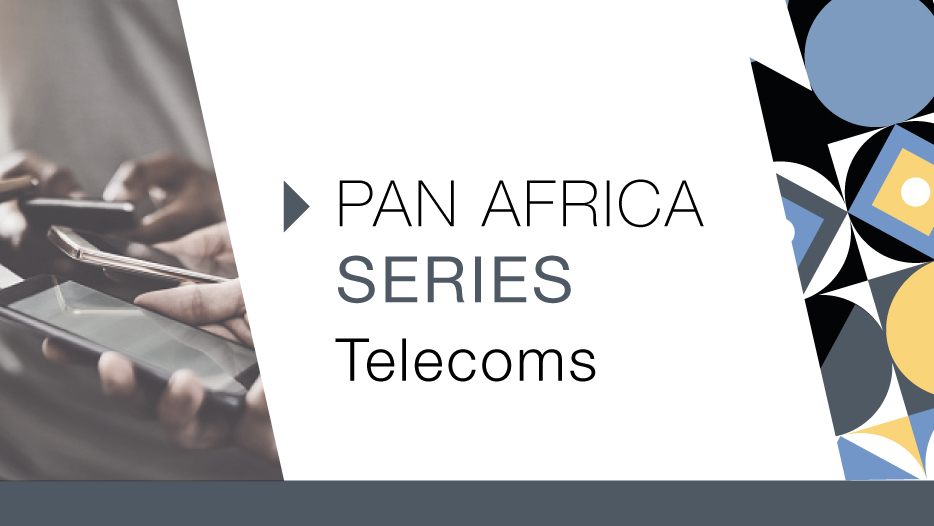According to Andrew Schultz, head of Investec African Securities, investors are increasingly seeing opportunities presenting themselves on the continent, particularly for institutions seeking excellent risk-adjusted returns.
“We have heard how attractive some of the company valuations are,” says Schultz. “African markets have been a little turbulent over the past couple of years, but now that most of the non-dedicated or ‘hot’ money has left, business appears to be on the up. We are seeing companies trading at all-time lows while still delivering good fundamental returns – there’s a strong and widely held view that this is a great time to access these markets.”
Speaking at a pan-African conference held earlier this year to bring investors and African companies together, hosted in Cape Town, Schultz said that investors should not be put off by the fact that a number of South African companies have struggled elsewhere in Africa.
Schultz warned that the opportunities need to be seen in the context of the risks normally associated with frontier markets, such as low liquidity or spikes in volatility. Institutional investors needed to take these risks into account when making their decision to invest.
“There are some strong performers on the continent, like Airtel Africa, which has shown robust revenue growth since listing on the London Stock Exchange in 2019, and Distell, whose headline earnings grew 7% in the 2019 financial year on the back of strong rest-of-Africa growth – most notably double-digit growth in Nigeria, Kenya, Ghana and other markets,” he says.
“The conference introduced investors to many familiar companies, but also to unlisted companies like Vlisco and Aradei Capital, which represent possible future investment opportunities in textiles and property.”
While South African growth is looking anaemic, some African countries are set for a rapid recovery and return to growth, with companies racing to provide products and services to populations growing at around 3% a year.
“Investors are interested in the four most liquid markets on the continent (excluding South Africa) – Egypt, Morocco, Nigeria and Kenya,” Schultz explains.
“Egypt currently has 100 million people and it’s growing steadily, along with income per capita. Rameda Pharmaceuticals listed on the Egyptian Exchange last year, with analysts (including Investec) targeting a potential 50% upside in its current valuation, while Integrated Diagnostics Holdings, which listed on the London Stock Exchange in 2015, has recorded strong revenue growth with solid margins. Eastern Company has also just posted stellar results.”
Cash-generative companies present opportunities
Unlike many of their South African counterparts, these companies are highly cash-generative. “The companies that have survived and thrived have been cash-flush – they haven’t had a huge need to raise capital,” says Schultz. “When they innovate, they don’t do so to raise capital but to grow the business and improve shareholders’ returns. This applies to many of the listed companies in Africa.”
Vodacom is one of the cash-generative companies in Africa, and although Vodacom Tanzania has struggled with biometric customer registration – one third of its customers have not yet been registered – it has nevertheless posted decent results and remained the market leader.
“We’re 15% up year-on-year on net operating profit, with a 32.6% increase in net profit after tax,” said Jacques Marais, finance director of Vodacom Tanzania. “The outlook is robust. We currently have 7.5 million 30-days active customers, and over 10 million M-Pesa customers, so there are big opportunities for us."
“We are looking at ecosystem expansion, adding new products and new functionality, like merchant payments; we have 12 000 active merchants and our systems are superior to those of our competitors, which is a differentiator going forward,” says Vodacom's Marais.
Concern about biometric registration notwithstanding, he is bullish about company prospects, particularly as the World Bank predicts growth of 5.6% this year, with 6.1% predicted for 2021. “We’re in a fortunate position – we have a lot of cash since registering our IPO in 2017.”
Success stories in the telecoms space
Helios Towers is a company that’s been doing exceptionally well – as one of Africa’s biggest telecoms tower leasing companies, it currently operates in five markets in Africa: Ghana, Tanzania, the Democratic Republic of Congo, Republic of Congo and South Africa (it has just signed a new agreement in South Africa). Helios Towers raised $364 million after listing on the London Stock Exchange last year.
“There are good, strong secular trends in mobile across Africa, says Chris Baker-Sams, Corporate Finance Manager at Helios. Since 2015, we have focused on reducing power costs and how we think about continuous improvement. Those two factors have been driving our growth.”

Telecoms in Africa – a catalyst for growth
Mobile connectivity growth has the potential to uplift the lives of millions of people in Africa, improving the range and affordability of services on offer.
Baker-Sams says Helios Towers provides its own power to its towers and this could become a business opportunity in the South African market, in light of Eskom’s inability to provide electricity consistently.
Another success story is Airtel Africa. According to Pier Falcione, Deputy CFO and Head of investor relations at Airtel Africa, revenue is at 23% in Nigeria and enjoying double-digit growth in many East African countries. Francophone countries are posing more of a macroeconomic challenge, however. “As a telecoms company, the good news for us is that our network across our market has mostly been modernised, so the capex we’re investing in is predominantly growth capex, and is spread across our markets with Nigeria being a key focus for us, as our largest market,” says Falcione.
With mobile money revenue growing at 40%, Airtel is eagerly awaiting Nigeria’s move into mobile money. “We believe government’s in the process of reviewing mobile money applications. There is high penetration in countries like Uganda, Zambia and Tanzania,” he explains. “We are seeing the price differential between 3G and 4G handsets flattening, and many consumers are leapfrogging 3G and going straight to 4G – this is being driven by the affordability of handsets but also by investments in networks that bring 4G to market.”
With household consumption across Africa predicted to reach $2.5 trillion by 2030, according to The Brookings Institution, it’s hardly surprising that companies are investing in frontier markets on the continent. “Many of them are sitting in a dominant position and enjoying a long-term rising tide in the number of consumers and clients – which is not the case in all developing markets,” says Schultz. “This may be a good time to catch the wave.”
Receive Focus insights straight to your inbox
About the author

Patrick Lawlor
Editor
Patrick writes and edits content for Investec Wealth & Investment, and Corporate and Institutional Banking, including editing the Daily View, Monthly View, and One Magazine - an online publication for Investec's Wealth clients. Patrick was a financial journalist for many years for publications such as Financial Mail, Finweek, and Business Report. He holds a BA and a PDM (Bus.Admin.) both from Wits University.




